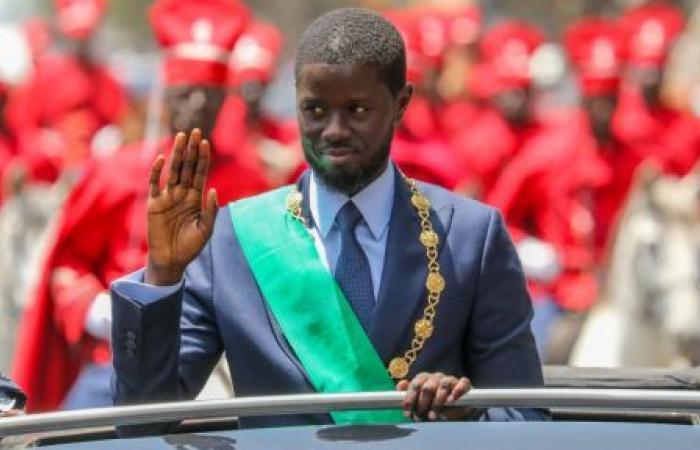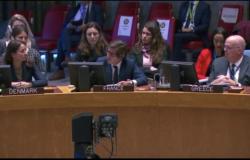(Ecofin Agency) – From 1is January to December 31, Africa experienced its share of new developments and surprises. In the political-economic field, the year was one of the most upsetting precisely in West Africa. From the launch of the Dangote refinery in Nigeria to the victory of John Dramani Mahama in Ghana through the exit of the AES from ECOWAS, the Public Policy team of theEcofin Agency offers you a retrospective of the most significant events on the continent in 2024.
1- Ethiopia and Egypt officially join BRICS which becomes BRICS+
BRICS (Brazil, Russia, India, China, South Africa) have decided to invite six new countries to join their bloc, including Ethiopia and Egypt from 1is January 2024. A heterogeneous alloy of geographically distant countries with economies with uneven growth, the BRICS have in common the demand for a more inclusive global balance and better representation of emerging countries in international governance bodies. The BRICS+, which now includes nine countries, represent nearly half of the planet’s population (3.6 billion people) and nearly 26% of global GDP.
2- Dangote refinery officially begins operations
After its inauguration in May 2023, the Dangote refinery entered the test phase in December 2023. Officially launched on Saturday January 13, 2024 in Nigeria, the oil mega-infrastructure, with a capacity of 650,000 b/d, now produces diesel, aviation fuel and gasoline. Almost a year after its start-up, it exports gasoline to Cameroon, the main African customer for its gasoline production. However, it faces significant supply challenges that undermine its ambitions to empower the Nigerian oil sector.
3- Exit of Mali, Burkina Faso and Niger from ECOWAS
Niger, Mali and Burkina Faso announced their immediate withdrawal from ECOWAS, on Sunday January 28, 2024, denouncing a “drift” of the community which would be under foreign influence, thus becoming “a threat to its Member States and its populations whose happiness it is supposed to ensure”. Before this decision, these countries had formed the Alliance of Sahel States (AES) to strengthen their cooperation in the face of international sanctions, adopting 18 recommendations on Saturday November 25, 2023. Despite calls for a negotiated solution from ECOWAS and mediations from Senegal and Togo, the three states rejected, on Sunday December 22, the six-month moratorium proposed by ECOWAS to consider their reintegration.
4- Election of Diomaye Faye as president of Senegal
Senegal began a new democratic era with the election of Bassirou Diomaye Faye (photo) as President of the Republic. The youngest head of state in the history of the country, Mr. Faye, designated candidate of Pastef-les Patriotes after the invalidation of Ousmane Sonko’s candidacy, inherited a dynamic economy but faced with significant challenges, requiring structural reforms and rigorous macroeconomic management to maintain growth stability and debt sustainability. The Head of State placed particular emphasis on transparency and good governance of public finances, by launching an audit of public finances (2012-2024) in collaboration with the IMF. He also promised reforms to justice and institutions during his inauguration speech. In October 2024, his administration presented a five-year plan aligned with the “Senegal 2050” agenda, focused on economic competitiveness, social equity, sustainable development and good governance.
5 – Regime change in Togo
In Togo, Parliament adopted a new Constitution on Monday March 25, 2024, promulgated by the Head of State, thus marking the country’s transition from a semi-presidential regime to a parliamentary regime. This reform was approved by a majority of 89 votes for, one vote against and one abstention. The President of the Republic will now be elected for a single six-year term by Parliament (National Assembly and Senate), and will occupy an honorary position. The real executive power will be vested in the President of the Council of Ministers who will be the leader of the majority party or coalition in the legislative elections.
6- Conviction of the former Guinean leader Moussa Dadis Camara
In Guinea, a bloody page in modern history closed on Wednesday July 31, 2024. That day, former leader Moussa Dadis Camara was sentenced to 20 years in prison for crimes against humanity in link with the massacre of September 28, 2009 at the Conakry stadium. Recall that members of the military junta in Guinea brutally repressed an opposition meeting in a stadium, causing the death of more than 156 people.
7- Post-electoral crisis in Mozambique
In Mozambique, after the proclamation of the results of the presidential election by the National Electoral Commission (CNE), on Wednesday October 9, 2024, the country was shaken by riots. The election of Daniel Chapo, of the ruling Frelimo party, was contested by his main opponent, Venâncio Mondlane, causing violent demonstrations, blockages and loss of life. Monday December 23, 2024, the Constitutional Council proclaimed Daniel Chapo, winner of the election with 65.17% of the votes against 70% initially proclaimed. This announcement came two months after the protest, plunging the country into a political crisis.
8- $300 billion in annual funding for developing countries at COP 29
The 29e Climate Conference of the Parties (COP 29) was held from Monday 11 to Sunday 22 November 2024 in Baku, Azerbaijan. It brought together developed and developing countries on the issue of global warming. At the end of the negotiations, rich countries promised to commit at least $300 billion in financing per year, by 2035, to developing countries. An amount deemed “ paltry » et « insulting » by members of these countries who had requested aid of more than $1,000 billion.
9- Breakdown of military agreements between Chad, Senegal and France
Chad announced, on Thursday, November 28, 2024, the termination of military agreements with France, calling into question the maintenance of the 1,000 French soldiers stationed on its territory. Historically an ally of Paris, some analysts believe that the country could consider joining the AES, although no official statement has been made on this subject. This decision is part of a growing rejection of the French military presence in Africa, as illustrated by Senegalese President Bassirou Diomaye Faye’s call to close French bases in the name of national sovereignty.
10- John Mahama wins presidency in Ghana
John Dramani Mahama is re-elected president of Ghana, during the vote on Saturday, December 7, 2024, which also marks the victory of his party, the National Democratic Congress (NDC), in the legislative elections. It proposes a program focused on economic, social and environmental reforms: reduction of taxes, job creation, improvement of education and protection of the environment, while controlling public finances. Despite high debt and dependence on the IMF, Mr. Mahama aims to modernize the energy sector and lay the foundations for sustainable growth.
Other events have also marked the continent, notably the economic crisis in Nigeria, the Mpox epidemic, climate tensions and the rise in tensions between the DRC and Rwanda. With its share of bad and good news, the year 2024 portends its share of important events for the year 2025.
Produced by the Public Policy team of the Ecofin Agency






